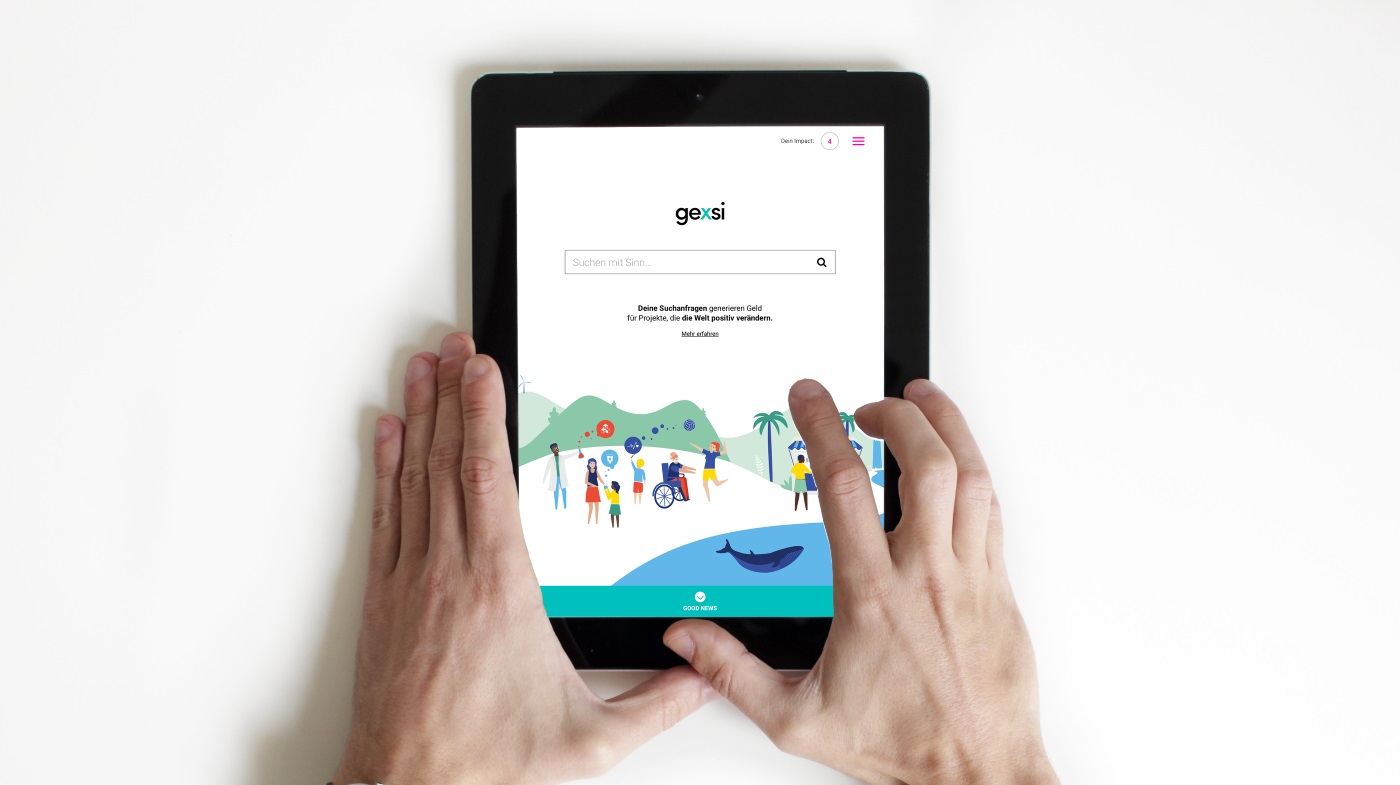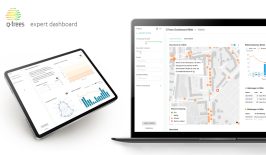With almost half of the world’s population now online, there are literally billions of people looking up stuff on the internet each and every day. Just on giant Google alone there are an average of over 40,000 search queries every second. That adds up to 3.5 billion searches per day and 1.2 trillion per year – oh, and 40 per cent of the internet’s carbon footprint too. What if all that human-powered quest for knowledge could be harnessed and put to good work?
Gesxi, which stands for the “Global Exchange for Social Investment”, is a search engine with a difference – a social business that channels a part of its profits into supporting projects that are working for a better world. Each click on a sponsored link within the search results generates a small amount of money – around half a cent per click. One cent might not sound like a lot, but with all those millions of clicks available, it means huge potential for significant impact.
The site supports a different project or initative every two weeks. The project picked is profiled on the site throughout that time, not only supplying them with some valuable media coverage, and also letting users know who their clicks will be supporting, how the project works and why they have been picked.
Why switch projects every two weeks and not focus on one project for longer? “This way we can stay flexible, support different projects when they need it most, and create the most impact possible,” Andreas Renner Gexsi’s CEO, told RESET.org.
Bridging the Funding Gap for Young Social Enterprises
In order to be eligible for GEXSI’s support, projects have to prove that they are helping to achieve at least one of the UN’s 17 Sustainable Development Goals. Conventional, established causes such as Unicef or Oxfam aren’t their main target. “Gexsi isn’t collecting donations for a charity, instead we’re raising financial support for social entrepreneurs, for projects and initiatives that are outside the mainstream,” explains Andreas, co-founder of eco-investment organisation The Generation Forest.
Among the projects chosen there is a strong focus on ideas that are fresh, innovative and scalable, as well as having the potential for sustainable, long-term impact. The concept of social investment and “helping others to help themselves” is writ large too – for example they’re far more likely to support a social enterprise that will supply villages in Africa in the long-term with drinking water at affordable prices, rather than collecting donations to constantly re-finance the digging of new wells.
And also unlike conventional fundraising sites, Gexsi is available to everyone – users don’t need to pay anything at all, and seeing how making internet searches is something most of us do every day anyway, it doesn’t require a change of routine, simply a change of search engine. You can install Gexsi as an add-on for your browser (Chrome, Firefox or Safari), so that it becomes your default choice for all your searches. Or you can set it to be your homepage on your computer or your phone.
Gexsi vs. Ecosia?
Like tree-planting search engine, Ecosia, Gexsi’s search results are powered by Microsoft’s Bing, the world’s second most popular search engine. So why not just join together with Ecosia and create double the impact? “The market is huge, and there’s space for more people who are doing good. We’re not here to compete with Ecosia, we’re here to provide an additional option.”
Transparency is key here too. The site keeps a track of the number of searches you’ve made, and thus your own impact, as well as letting you see how much funding has been raised and how the different projects have been supported. Sure, it’s early days so the numbers are fairly modest, but they’ve had some exciting collaborations already, including with the social business ConflictFood that sells fairly-traded products from conflict areas, and the German app ReplacePlastic that allows consumers to directly petition supermarkets and food producers and get them to reduce or change their packaging decisions.
While the Gexsi team already has, thanks to its background in the field of social business, a strong network of partners to help them find new projects that could do with their support, they welcome feedback from users, in particular tips about other projects and initiatives that they can support with their platform. You can contact them via email.








